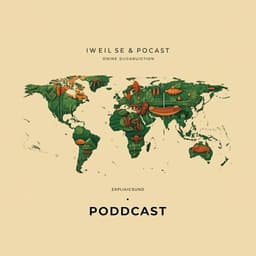
Psychology
Collective incentives reduce over-exploitation of social information in unconstrained human groups
D. Deffner, D. Mezey, et al.
This captivating study by Dominik Deffner, David Mezey, Benjamin Kahl, Alexander Schakowski, Pawel Romanczuk, Charley M. Wu, and Ralf H. J. M. Kurvers explores how individuals navigate personal and social information in decision-making. Through an immersive experiment, the research reveals intriguing dynamics between individual gains and group losses in concentrated environments, highlighting the complex interplay of incentives and social cues.
Related Publications
Explore these studies to deepen your understanding of the subject.







